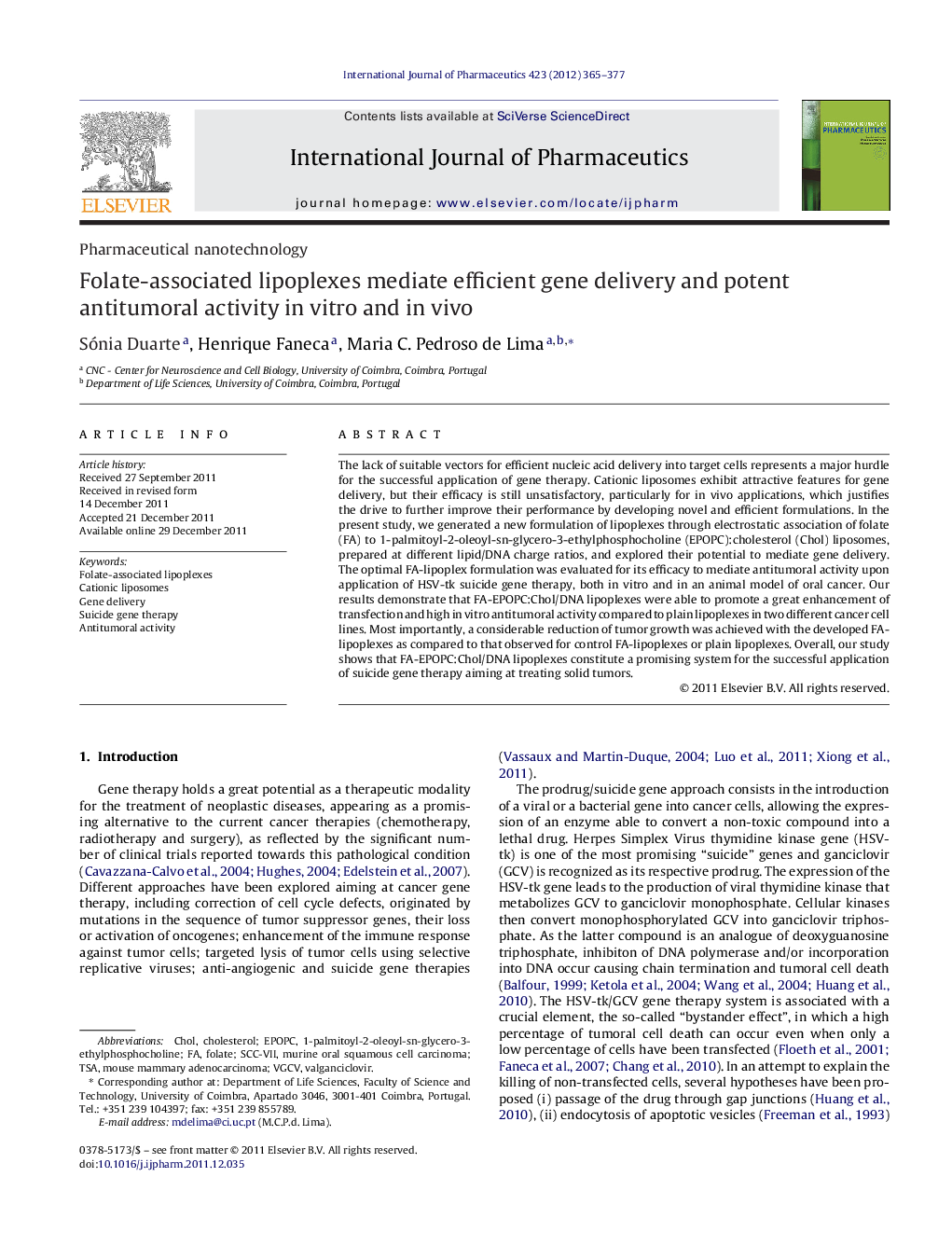| Article ID | Journal | Published Year | Pages | File Type |
|---|---|---|---|---|
| 5821108 | International Journal of Pharmaceutics | 2012 | 13 Pages |
Abstract
The lack of suitable vectors for efficient nucleic acid delivery into target cells represents a major hurdle for the successful application of gene therapy. Cationic liposomes exhibit attractive features for gene delivery, but their efficacy is still unsatisfactory, particularly for in vivo applications, which justifies the drive to further improve their performance by developing novel and efficient formulations. In the present study, we generated a new formulation of lipoplexes through electrostatic association of folate (FA) to 1-palmitoyl-2-oleoyl-sn-glycero-3-ethylphosphocholine (EPOPC):cholesterol (Chol) liposomes, prepared at different lipid/DNA charge ratios, and explored their potential to mediate gene delivery. The optimal FA-lipoplex formulation was evaluated for its efficacy to mediate antitumoral activity upon application of HSV-tk suicide gene therapy, both in vitro and in an animal model of oral cancer. Our results demonstrate that FA-EPOPC:Chol/DNA lipoplexes were able to promote a great enhancement of transfection and high in vitro antitumoral activity compared to plain lipoplexes in two different cancer cell lines. Most importantly, a considerable reduction of tumor growth was achieved with the developed FA-lipoplexes as compared to that observed for control FA-lipoplexes or plain lipoplexes. Overall, our study shows that FA-EPOPC:Chol/DNA lipoplexes constitute a promising system for the successful application of suicide gene therapy aiming at treating solid tumors.
Keywords
Related Topics
Health Sciences
Pharmacology, Toxicology and Pharmaceutical Science
Pharmaceutical Science
Authors
Sónia Duarte, Henrique Faneca, Maria C. Pedroso de Lima,
